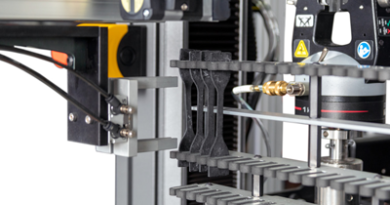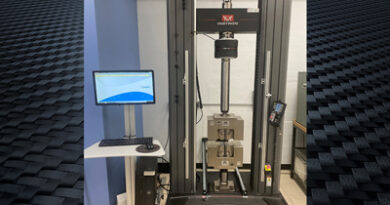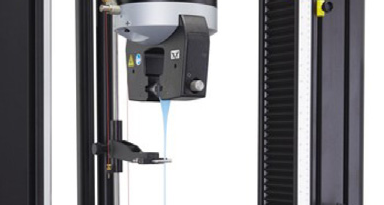How to increase throughput when testing elastomers
When elastomers are being used in a manufacturing process, it is important to verify their physical properties by performing testing
at all stages of production. When researching and developing new elastomers, such as those used in tires, extensive testing is required to verify and validate each elastomeric compound. Research and development facilities for elastomeric materials will sometimes go through hundreds or thousands of specimens before moving on toward production. During production, testing is typically performed for quality control purposes



